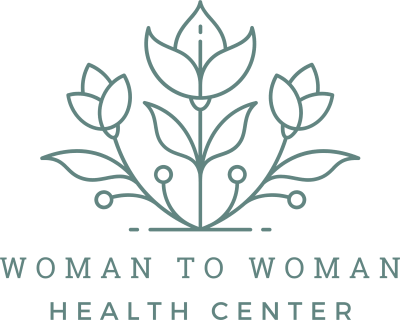The FDA recently approved an over-the-counter birth control pill that will become available in 2024, which means you will be able to access this without a prescription from a doctor.
Read on to learn all about this new over-the-counter birth control option—including potential risks. Or, if you’re looking for low-cost or free birth control, contact Woman to Woman Health Center to schedule a free, confidential birth control consultation.
How Does the Over-the-Counter Birth Control Pill Work?
There are two different types of hormonal birth control pills: estrogen/progestin (combination) and progestin-only.
While the estrogen/progestin combination pill is the most common and reliable (99.9% if used correctly), the over-the-counter birth control pill is progestin-only (also known as the “mini-pill”), which is less reliable (91-99%, depending on if it’s used correctly).
Progestin-only birth control pills work by thickening cervical mucus and thinning the uterine lining. This prevents sperm from reaching the egg. However, unlike the estrogen/progestin combination pill, the progestin-only pill doesn’t prevent ovulation in every woman.
What Are the Risks of Over-the-Counter Birth Control?
While over-the-counter birth control sounds convenient, it does come with risks, which include:
- Accidental pregnancy: To be most effective, the progestin-only pill must be taken at the same time or within the same three-hour window each day. Even with typical use, 9 out of 100 women who take the progestin-only pill will get pregnant during their first year of use.
- Ectopic pregnancy: If you do become pregnant while on the progestin-only pill, there’s a slightly higher chance that you may experience an ectopic pregnancy. This is a life-threatening situation where your pregnancy grows outside your uterus.
Furthermore, the progestin-only pill isn’t for everyone. You’re ineligible if the following situations apply to you:
- Have past or present breast cancer.
- Have certain liver diseases.
- Have unexplained uterine bleeding.
- Take certain medicines for tuberculosis or HIV/AIDS or to control seizures.
How Can I Protect My Health?
Every woman is unique and will respond differently to various birth control methods. Before choosing a specific birth control pill, it’s essential to meet with a healthcare provider to review your health history.
At Woman to Woman Health Center, we care about your reproductive health and offer free Birth Control Consultations. During this appointment, we will review your personal and family history, perform a risk assessment, and provide counseling to ensure that you choose the best birth control method for you. Because you’re worth it.
Contact us today to schedule a free, confidential appointment.
